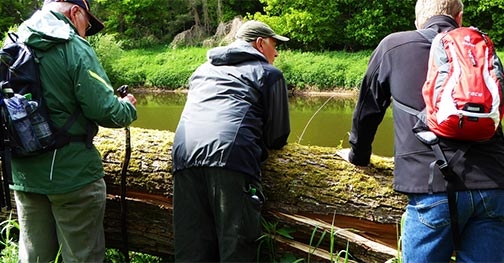The new 2 years Erasmus+ project Walk & Talk promotes non-formal learning of Europeans 65+, along with physical activities taking place outside the classroom. While the seniors are walking, they will learn about the interrelation between physical activity and active and healthy aging. They might learn a new language, discuss local culture and history, traditions, use apps etc. Senior learners can meet outside the centre of their home towns, in nature, or within their own surrounding or neighbourhood, which will be easier for the seniors living in big cities.
Nowadays, retirement can be seen as an increasingly active phase of life where people still have the opportunity to continue contributing to society. They wish to be independent and live participative lives well into older age and take responsibility for their own wellbeing. This, however, requires physical and mental health. The Walk & Talk project integrates both aspects, learning and physical activity, in a unique way.
Walk’n’Talk is actually a therapy that originated in the US in the 80s. This therapy combines talking and walking outdoors that was proofed to be an effective method to make retirement an active phase of life. According to the demographic changes, people at the age of 65 and above, who have withdrown from the labor force, need to have the opportunity to stay healthy and active and watch life from a positive perspective as the chance for learning and enjoying. However, mental and physical health is necessary to increase quality of life. That is why taking part in Walk’n’Talk is a great chance to foster this overall health by means of taking advantage of its walks and talks through the inspiring nature with a group of people with the same needs and interests. As the name of the project suggest, this course is not developed to be taught in a normal formal setting as it is a traditional classroom but to be given outside in the nature where senior will walk in small groups and talk – and learn while sharing experience, knowledge and interests.
The main result of the Walk’n’Talk project will be a course curriulum and training materials, which will enhance the life quality of people at the age of 65 through outdoor non-formal learning activities. With this course for senior people, the partners intend to reduce social barriers and foster social inclusion and participation.
The increased competence of staff/adult educators in implementing activities in the field of adult education and thus activate local communities will be another important result. Last but not least, the participation of trainers/instructors is expected to deliver enhanced knowledge, skills and competences in training seniors; increased awareness of age-related differences in dual task situations and improved intercultural communication and understanding by contributing to the development of a European project.
Source: Walk & Talk Website
